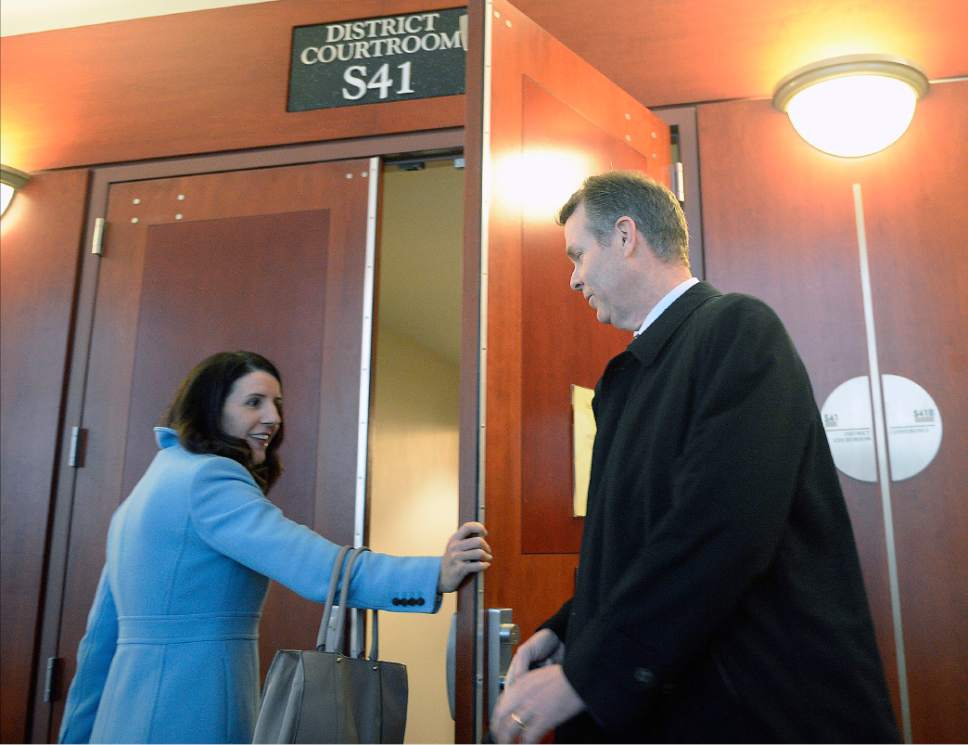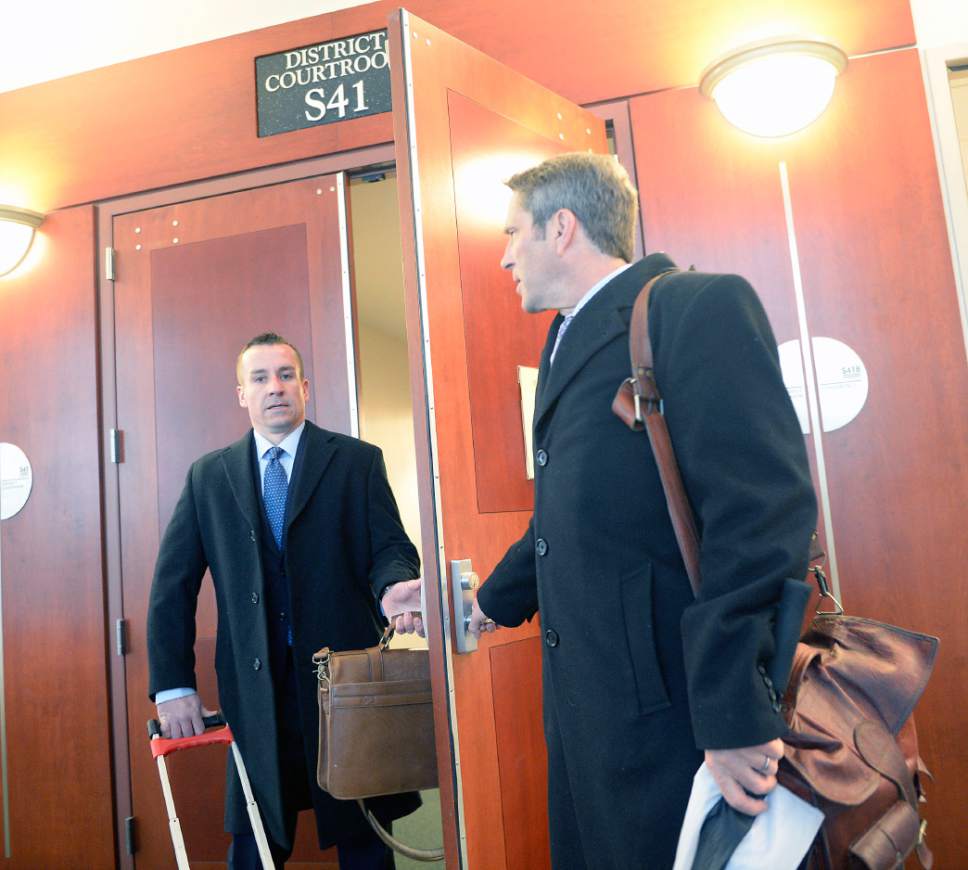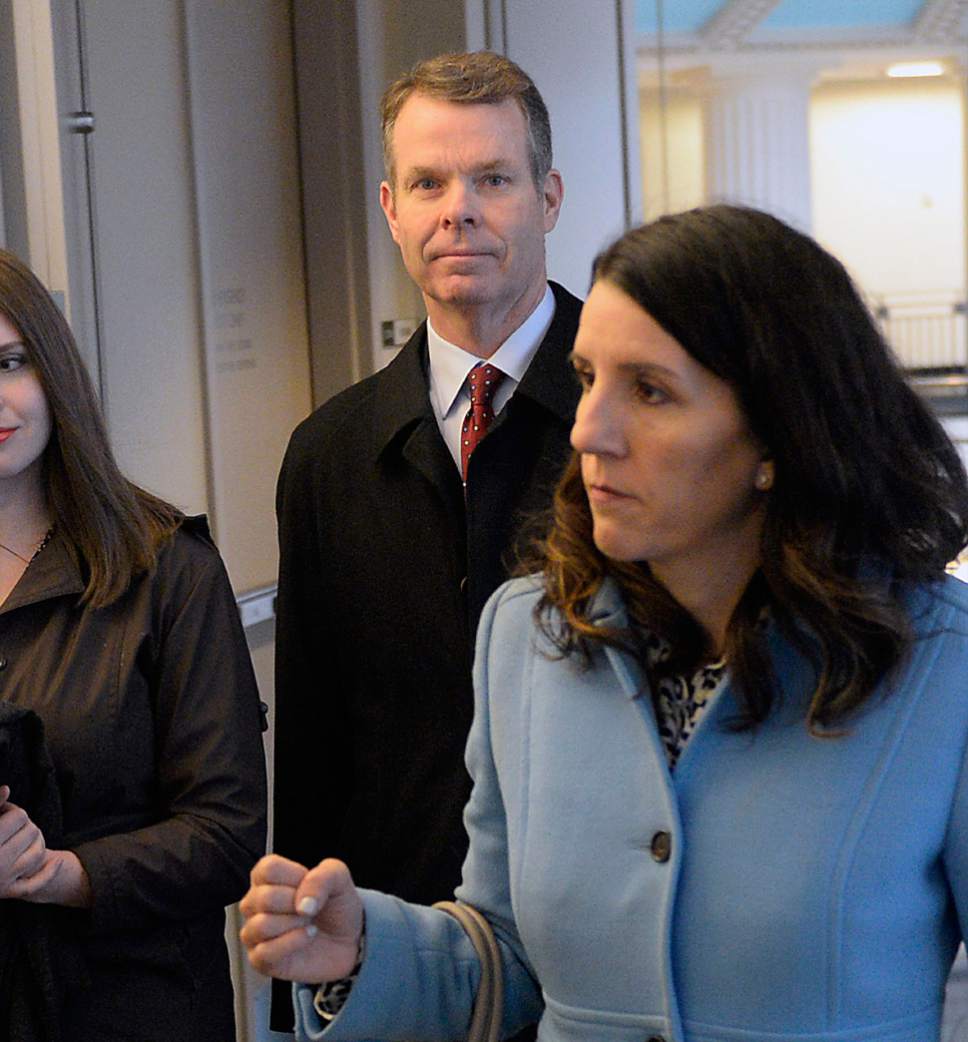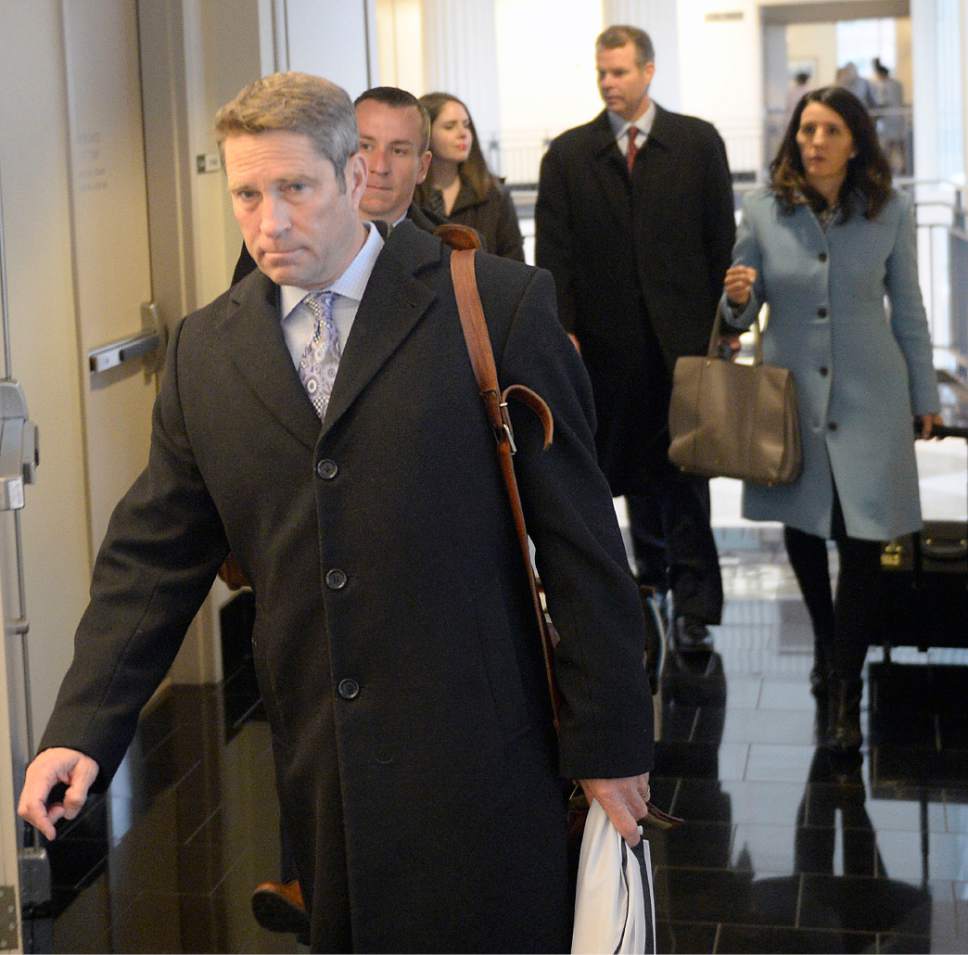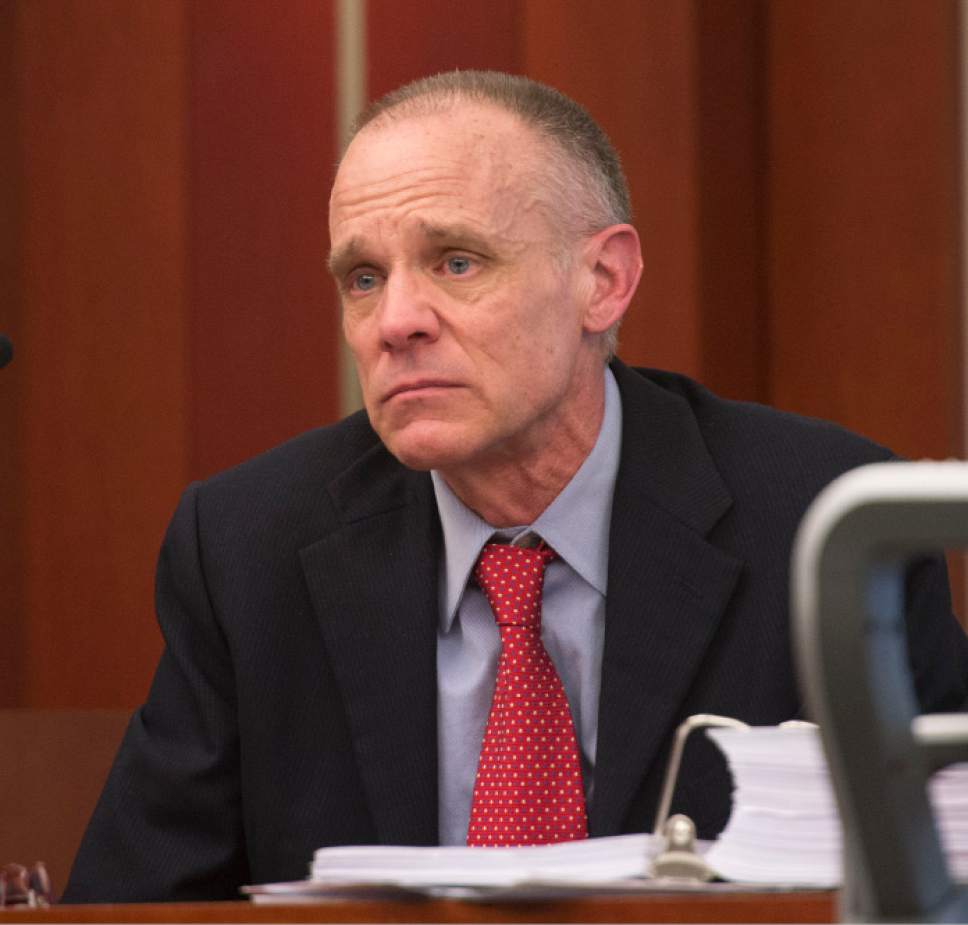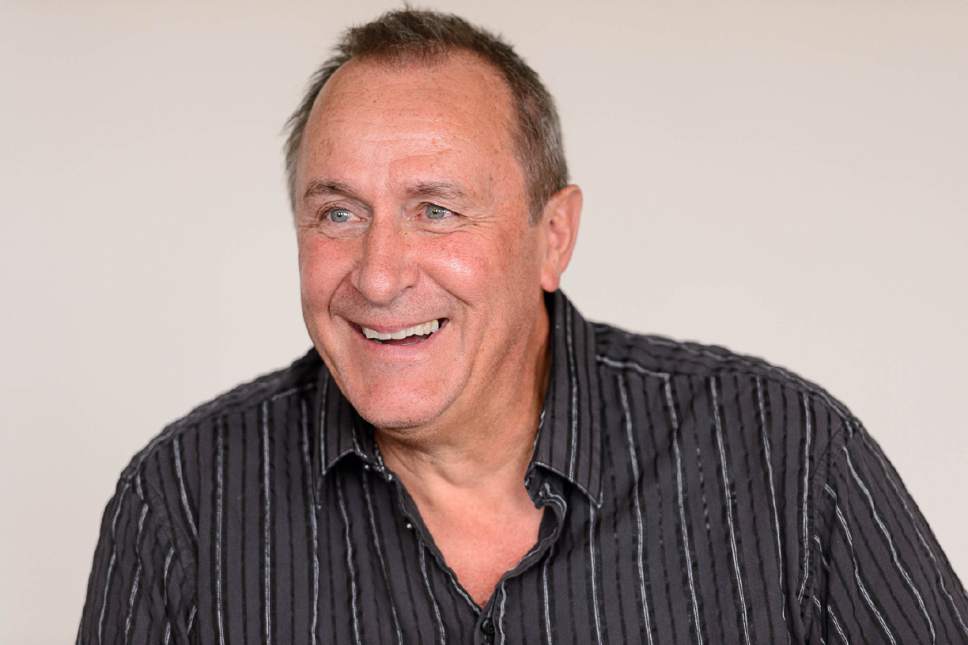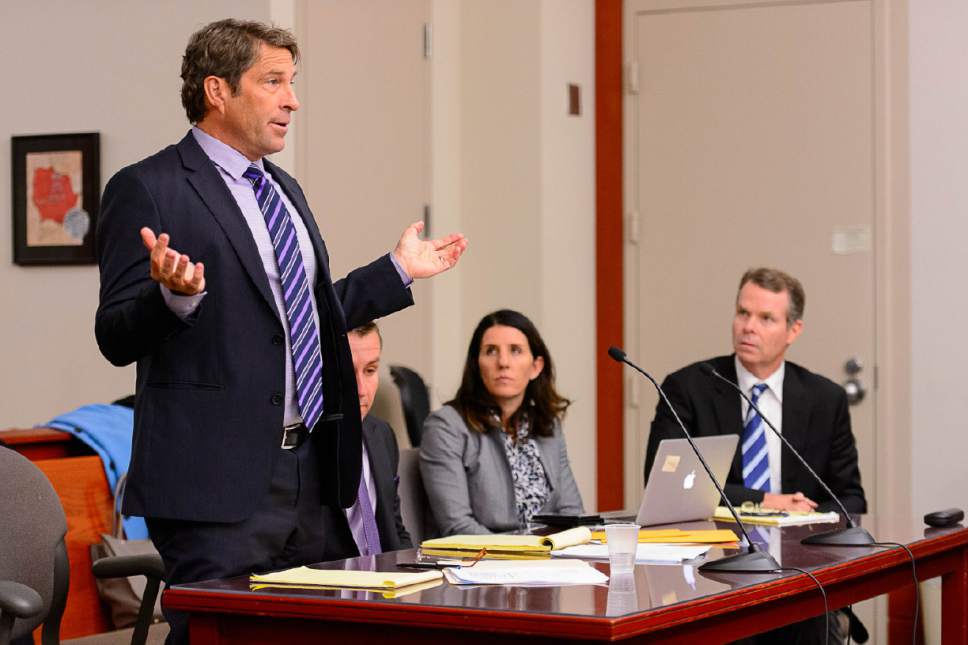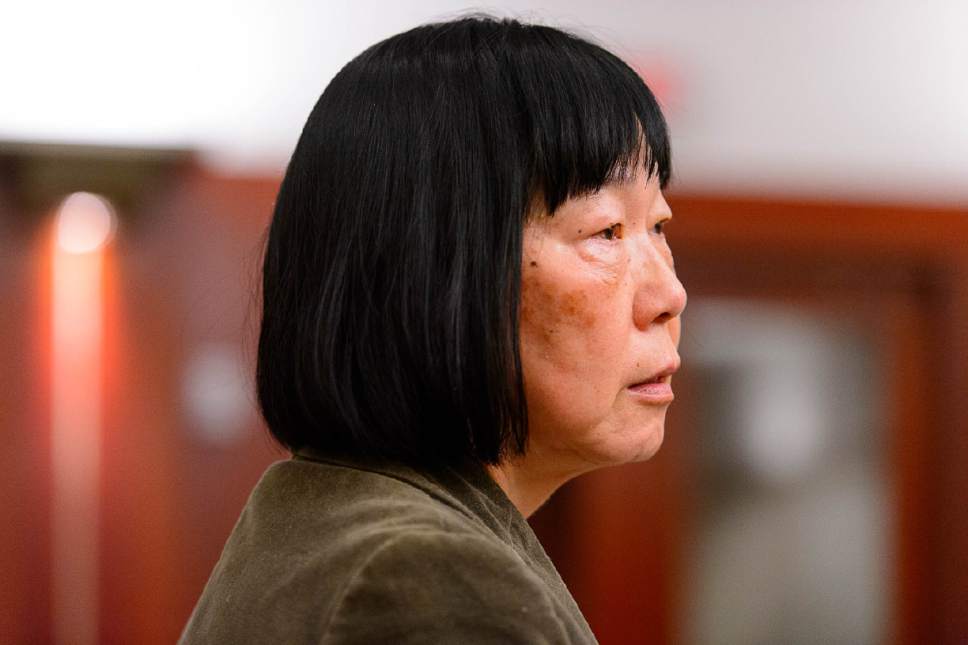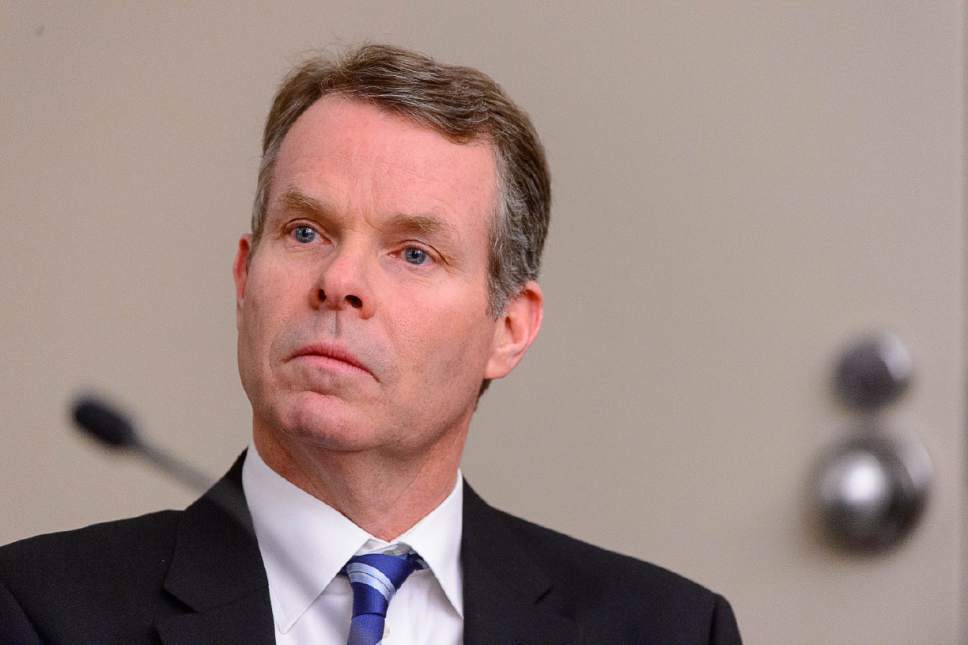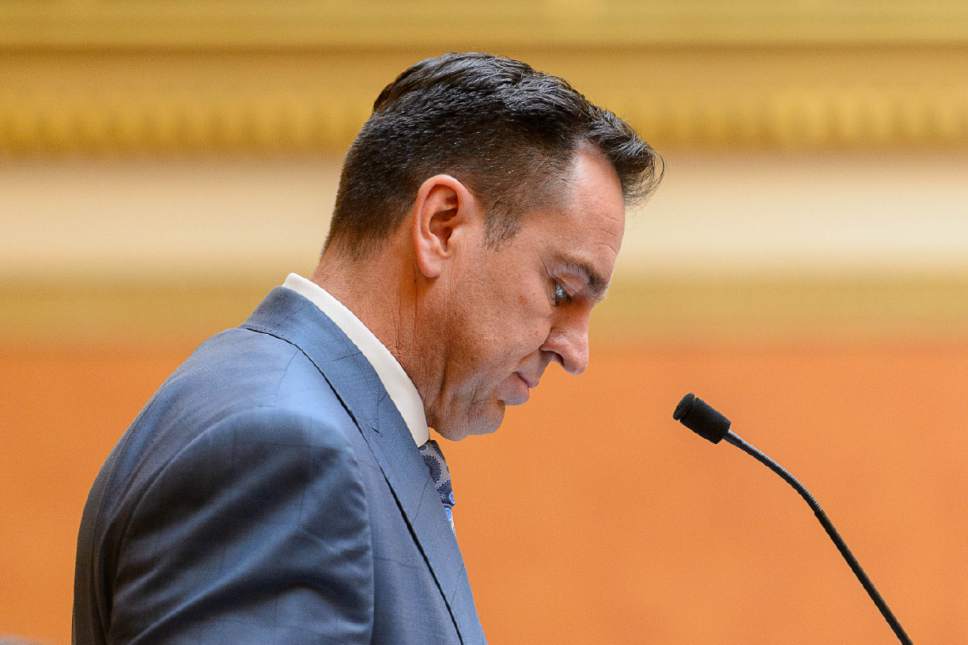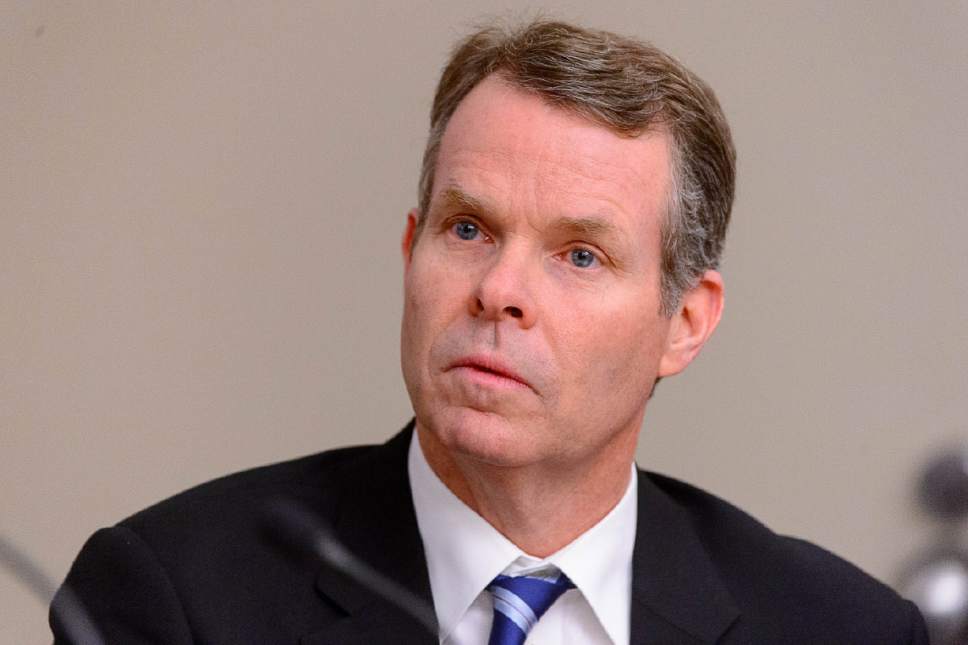This is an archived article that was published on sltrib.com in 2017, and information in the article may be outdated. It is provided only for personal research purposes and may not be reprinted.
The jury is set in the trial of John Swallow.
Seven men and five women — with four people acting as alternates — were picked Tuesday from a pool of 205 Utahns to begin hearing the case against the former Utah attorney general, who is accused of racketeering, bribery and other public-corruption-related crimes.
Opening statements are scheduled for Wednesday morning.
Swallow, 54, has pleaded not guilty to 13 felony and misdemeanor charges, stemming from allegations of a pay-to-play climate inside the attorney general's office. If convicted, he could spend 30 years in prison.
The jury could hear from as many as 120 witnesses, including 52 who will testify for Salt Lake County prosecutors.
Included on the list are former Swallow campaign staffers, current and former employees of the Utah attorney general's office and several businessmen who sought assistance from, or access, to Swallow and his immediate predecessor, former three-term Attorney General Mark Shurtleff.
Once-imprisoned businessman Marc Sessions Jenson is expected to be the first witness Wednesday. He is expected to testify about the 2009 trips Swallow and Shurtleff made to a ritzy Southern California resort.
Jenson alleges he was arm-twisted into footing the bill for both men. The trips came while Jenson was on probation in a securities case filed against him when Shurtleff was attorney general. Swallow wasn't working for the office at the time, but was raising campaign funds for Shurtleff.
Shurtleff, whose parallel case was dismissed last year, is also expected to be called, but by Swallow's defense team, not prosecutors.
Tuesday's voir dire process of picking jurors occurred behind closed doors, with only the final selection by opposing attorneys open to the public.
The Salt Lake Tribune and Deseret News objected to the closure, with reporters arguing that two U.S. Supreme Court rulings have upheld the public's First Amendment right to observe the questioning of potential jurors.
The decisions allow for closure to protect the privacy of individual jurors, or when doing so shields an important government interest.
At midday, 3rd District Judge Elizabeth Hruby-Mills said she had closed the court in the interest of juror privacy and explained that the questions being asked by Salt Lake County prosecutors and Swallow's defense team related to personal information, including medical and family concerns.
The judge said the process was closed because "we don't want a chilling affect on jurors trying to do their civic duty."
Media attorney Michael O'Brien, who represents The Tribune, contends the allegations of criminal corruption by Utah's former top cop raise the public interest stakes and the grounds for keeping the process open.
"In such a case, the public has a compelling interest in observing all aspects of the trial process, including the jury selection process," he said. "Many Utah courts have successfully selected juries in high-profile cases without the total closure that has been imposed here. It is not clear why this case should be any different."
Before Tuesday's voir dire, the court used a roughly 100-question survey to screen the jury pool for potential conflicts or other issues in hopes of reducing the number of people to be questioned in person.
The Tribune also sought to obtain the questionnaire, but the court declined to release it, citing an objection from the Swallow's attorney Scott C. Williams.
At a hearing in early January, Williams said Swallow wanted to keep the questionnaire private — at least temporarily — to protect the names of defense witnesses who were concerned about being identified out of fear they might be harassed by the public or law enforcement.


